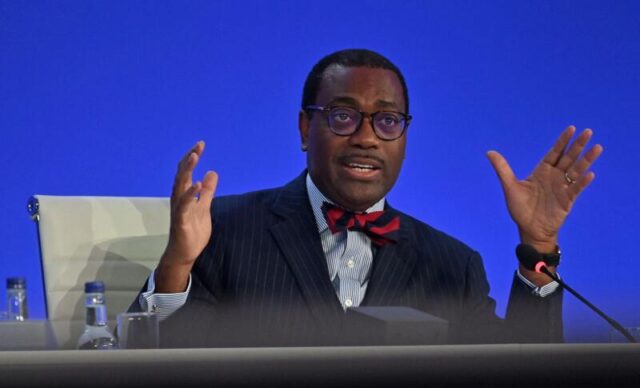South Africa is missing out on Africa’s growth boom, with the Africa Macro-Economic Performance and Outlook report by the African Development Bank noting that Africa would account for 11 of the world’s 20 fastest-growing economies this year.
SOUTH Africa is missing out on Africa’s growth boom as the Africa Macro-Economic Performance and Outlook (MEO) report by the African Development Bank (AfDB) released on Friday said Africa would account for 11 of the world’s 20 fastest-growing economies this year.
Africa was set to to remain the second-fastest-growing region after Asia.
The expectations for higher growth this year comes as Africa’s economic growth fell to 3.2% in 2023 from 4.1% in 2022.
This was below the 3.4% growth the AfDB had forecast in November as geopolitical volatility, the Russia-Ukraine war and China’s economic slowdown after Covid-19 knocked growth.
On a continental level, Africa’s gross domestic product growth will amount to 3.8% this year before rebounding to 4.2% next year, a notch higher-than-projected global averages of 2.9% and 3.2% over the same periods.
East Africa will continue to lead Africa’s growth momentum, with growth projected to rise to 5.1% this year and 5.7% in 2025, supported by strong strategic investments to improve internal connectivity and deepen intra-regional trade.
The AfDB has, however, spotlighted the effect of South Africa’s economic constraints – that sharply contrast with robust growth from elsewhere across the continent – on the economic growth prospects of the Southern Africa region.
“For Southern Africa, growth will remain sluggish at 2.2% and 2.6% in 2024 and 2025, respectively. This reflects continued economic weakness in South Africa, the region’s largest economy,” noted analysts at the AfDB on Friday.
South Africa, which accounts for 60% of Southern Africa’s total output, is set for sustained subdued growth amid load shedding, infrastructure and logistics bottlenecks at Eskom and Transnet, which are curtailing productivity.
The continental development financier sees a 1.1% growth for South Africa in 2024 and a sluggish rebound to 1.6% in 2025.
The International Monetary Fund earlier this year also predicted a 1% economic growth outlook for South Africa, while economists at Investec agreed on the same economic growth trajectory.
The top 11 African countries projected to experience strong economic performance forecast were Niger (11.2%), Senegal (8.2%), Libya (7.9%), Rwanda (7.2%), Cote d’Ivoire (6.8%), Ethiopia (6.7%), Benin (6.4%), Djibouti (6.2%), Tanzania (6.1%), Togo (6%), and Uganda at 6%.
Economic growth in Mozambique and Mauritius would likely top 5% and amount to 4.9%, 4.7% and 4.1% in Eswatini, Zambia and Botswana respectively, said AfDB.
Bank Group president Dr Akinwumi Adesina said, “Despite the challenging global and regional economic environment, 15 African countries have posted output expansions of more than 5%.”
He called for larger pools of financing and several policy interventions to further boost Africa’s growth.
Adesina said fiscal deficits had improved, as faster-than-expected recovery from the pandemic helped shore up revenue, but cautioned that with the global economy mired in uncertainty, the fiscal positions of the African continent would continue to be vulnerable to global shocks.
The AfDB’s chief economist and vice president, Professor Kevin Urama, said: “Growth in Africa’s top-performing economies has benefited from a range of factors, including declining commodity dependence through economic diversification, increasing strategic investment in key growth sectors, and rising both public and private consumption, as well as positive developments in key export markets.”
He added: “Africa’s economic growth is projected to regain moderate strength as long as the global economy remains resilient, disinflation continues, investment in infrastructure projects remains buoyant, and progress is sustained on debt restructuring and fiscal consolidation.”
Commissioner for Economic Development, Trade, Tourism, Industry and Minerals, AU commission ambassador Albert Muchanga, said, “The future of Africa rests on economic integration. Our small economies are not competitive in the global market. A healthy internal African trade market can ensure value-added and intra-African production of manufactured goods.”
He assured that the MEO forecast and recommendations would be made available to African heads of state and that the report would be useful when the AU makes its proposals to the G20 – an informal gathering of many of the world’s largest economies to which the AU was admitted last year.
– BUSINESS REPORT








